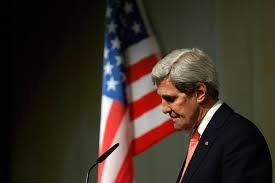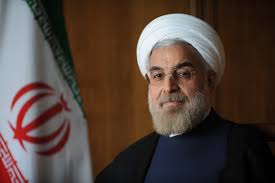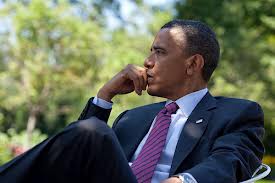A Familiar Presidential Question – once again, an American President will have to decide the role intervention and preemption play in American foreign policy
-Christopher Carroll
This year, President Obama will have to do exactly what he seems to heartily dislike. Soon he will have to re-examine the role America and the America military are going to play in the Syrian conflict. In doing so, he will once again signal the place intervention and preemptive action hold in American foreign policy. The results will have far reaching implications for Syria, Iran and the entire Middle East.
Just two days ago in off-record remarks made to Senators Lindsey Graham (R-S.C), John McCain (R – A.Z.) and about a dozen members of Congress, Secretary of State John Kerry voiced skepticism that the Obama administrations Syria policy is working.
In what Jennifer Psaki, Secretary of State Kerry’s spokesman, deemed a “mischaracterization” of Kerry’s remarks, Senators McCain and Graham welcomed Mr. Kerry’s determination that chemical weapons removal was being “slow-rolled.” The two Senators have long been frustrated with the Obama foreign policy in Syria and believe that an increased military presence is required to bring an end to the ongoing humanitarian crises.
Kerry’s statements, explains Ms. Psaki, are in line with administration policy. “No one in this administration thinks we’re doing enough until the humanitarian crisis has been solved and the civil war ended.”
 The Geneva negotiations have as of yet proved fruitless. “We haven’t achieved anything,” explained U.N. envoy Lakhdar Brahimi. The stakes, however, are high. Since the beginning of the conflict, more than 100,000 people have been killed, with nine million Syrians forced to flee from their homes and a recent testimony by Director of National Intelligence James Clapper suggests that regions in the country are becoming a center of radical extremism and a potential threat” to the United States.
The Geneva negotiations have as of yet proved fruitless. “We haven’t achieved anything,” explained U.N. envoy Lakhdar Brahimi. The stakes, however, are high. Since the beginning of the conflict, more than 100,000 people have been killed, with nine million Syrians forced to flee from their homes and a recent testimony by Director of National Intelligence James Clapper suggests that regions in the country are becoming a center of radical extremism and a potential threat” to the United States.
****
President Obama’s policy has been widely criticized since pronouncing two and a half years ago that “the time has come for President Assad to step aside.” Now, with his Secretary of State, prominent members of the Senate, and senior members of the national intelligence community raising the alarm, Mr. Obama could soon be forced to make new decisions.
In 2014, an American President will once again be forced to decide the role intervention and preemption will play in American foreign policy. Syrian rebels, President Bashar al-Assad and Russian President Vladimir Putin will wait as the future of American intervention is determined. Meanwhile, Iran and the Middle East will watch for signs of the future of American pre-emptive action.
Will President Obama’s aversion for the neo-conservative policies of the Bush administration, coupled with his seeming preference for Jeffersonian foreign policy, give way to calls for action from members of his own Cabinet and Senate? Time will tell.
Filed under: Foreign Policy, National Security | Tagged: Foreign Policy, John Kerry, John McCain, Lindsey Graham, Middle East, President Assad, President Obama, Syria | Leave a comment »


















